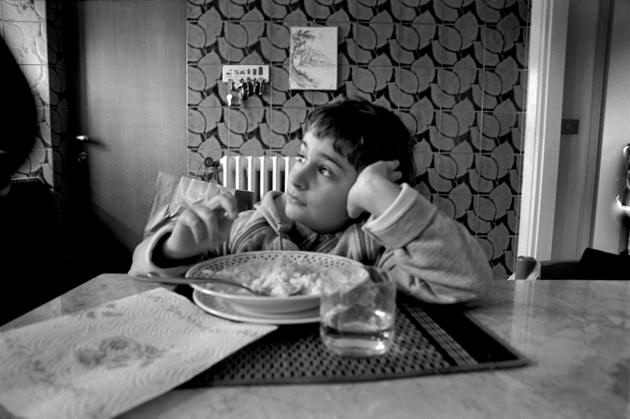All things in the universe arrange themselves to each person anew, according to his ruling love.
—R.W. EmersonMangia bene, caca forte, e non aver paura della morte.
—Tuscan proverb
Back in the early 1970s, when I was teaching in California, I had a colleague named Bob Williams who taught fiction writing and was famous for beginning each semester with a lecture on the art of cooking. He’d tell his students, for example, how to prepare a dish of sausages, onions, and peppers—elaborately describing how to chose the right frying pan, olive oil, and sausages, explaining next how they ought to be cooked till browned and then removed from the pan—so that the sliced onions, garlic and peppers, and whatever fresh herbs could be introduced in their own proper order—until he had the entire class salivating. The point, of course, was not just to stimulate their appetites, but to show them the degree of love and devotion to the smallest detail required to turn this simple Italian dish, often poorly made, into a culinary masterpiece. Writing stories and poems was like that too, he told them. Instead of the ingredients he had just conjured, there would be words, experiences, and imaginings to combine. Actually, what he demonstrated to his students was the ancient relationship between cooking, eating well, and storytelling.
Bob grew up on a farm in New Jersey next door to some Italian farmers in whose kitchens he learned how to eat and cook. He believed in the simplest of dishes done well. In California, with all the fresh vegetables available in the markets and people’s gardens, that made perfect sense. He never cooked a bad meal for me, and yet he constantly fretted about something not coming out right. We’d console him, telling him he was imagining things, but he wouldn’t hear of it. There was an element of chance in cooking that gave it a touch of unpredictability. Yeah, sure, these linguine with clams in white sauce were good, but you ought to have tasted them the last time he made them.
Inevitably, these complaints about how the linguine we were eating turned out made him think of other dishes that he either cooked himself or ate somewhere else, which in turn recalled people he had known and stories about them. Bob was like my grandmother, who associated every important event in the twentieth century with what she was eating that day. She could tell you exactly what kind of bean soup she was making the day World War II ended, the difficulty of finding sausages and smoked pork ribs, and how she had on hand only some bacon. This is the kind of talk that either bores or delights its listeners. Like my late friend Bob, I see food and wine as aids to memory and inspirers of eloquence. Without it even the most exquisitely prepared meal is not as satisfying to me.
At least in the United States, this kind of eating and storytelling is now only experienced at someone’s home, since restaurants tend to be too noisy, too dark, and their seating too cramped to linger over a meal, especially when the waiters are hovering, in a hurry to get rid of us. Even with all the cooking shows on television and all the thousands of cookbooks available in bookstores, fewer and fewer people have the time to cook at home and invite friends over. Thinking about it the other day, I realized that most of what I learned about my family members and their lives I heard over family meals. More than that, some of the stories I still tell my friends I first heard some relative or family friend relate over a long dinner or Sunday lunch more than sixty years ago. You may be wondering, perhaps, what was I doing sitting with grown-ups at the table when I ought to have been in bed or playing with kids my age in the back yard? I wonder about that myself. Clearly, all that talk and laughter, not to mention the remains of the delicious meal left lying around to nibble on—and even a sip of wine from a glass when no one was looking—were more interesting to me than whatever went on elsewhere at that moment, whether in the streets or in the world.



